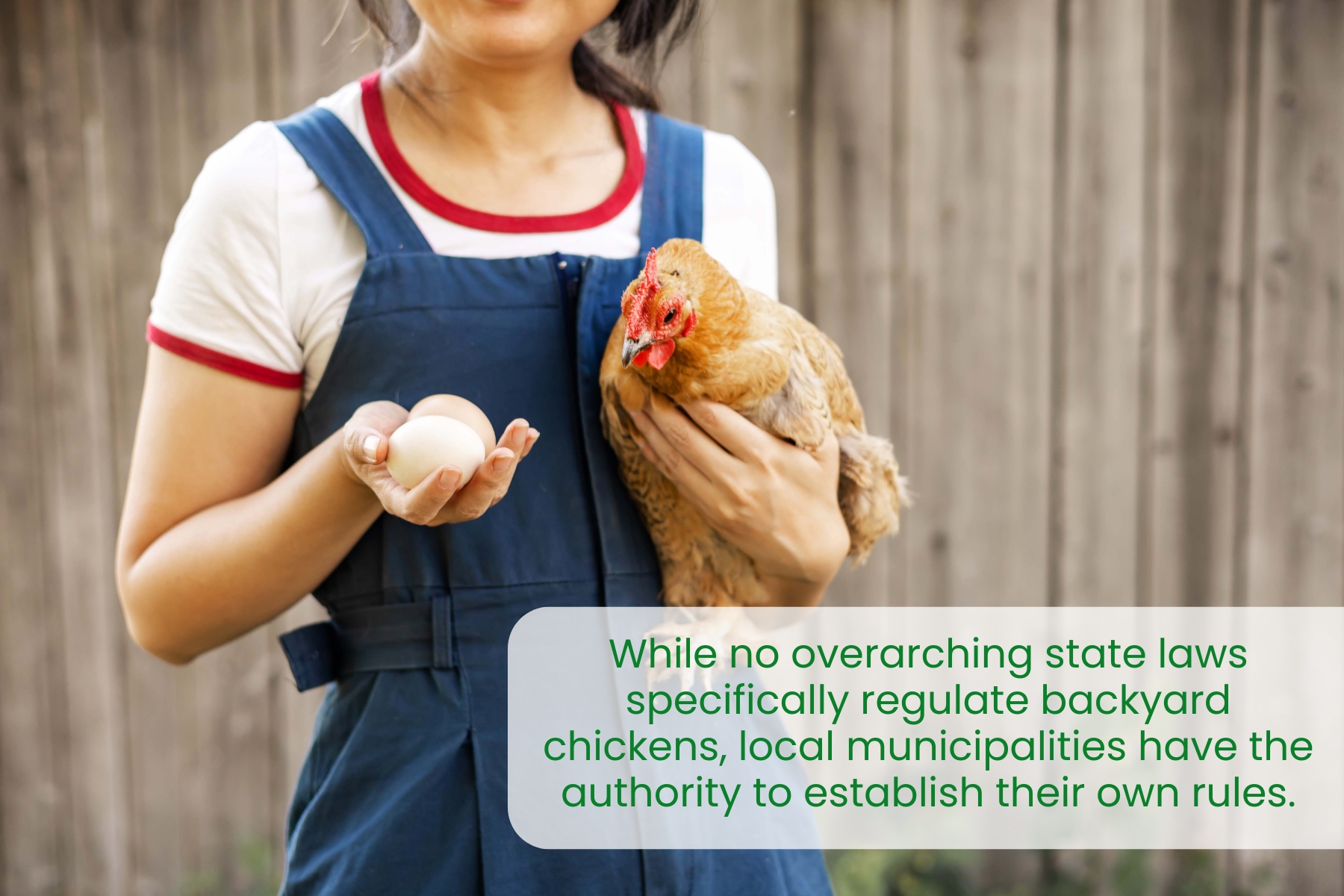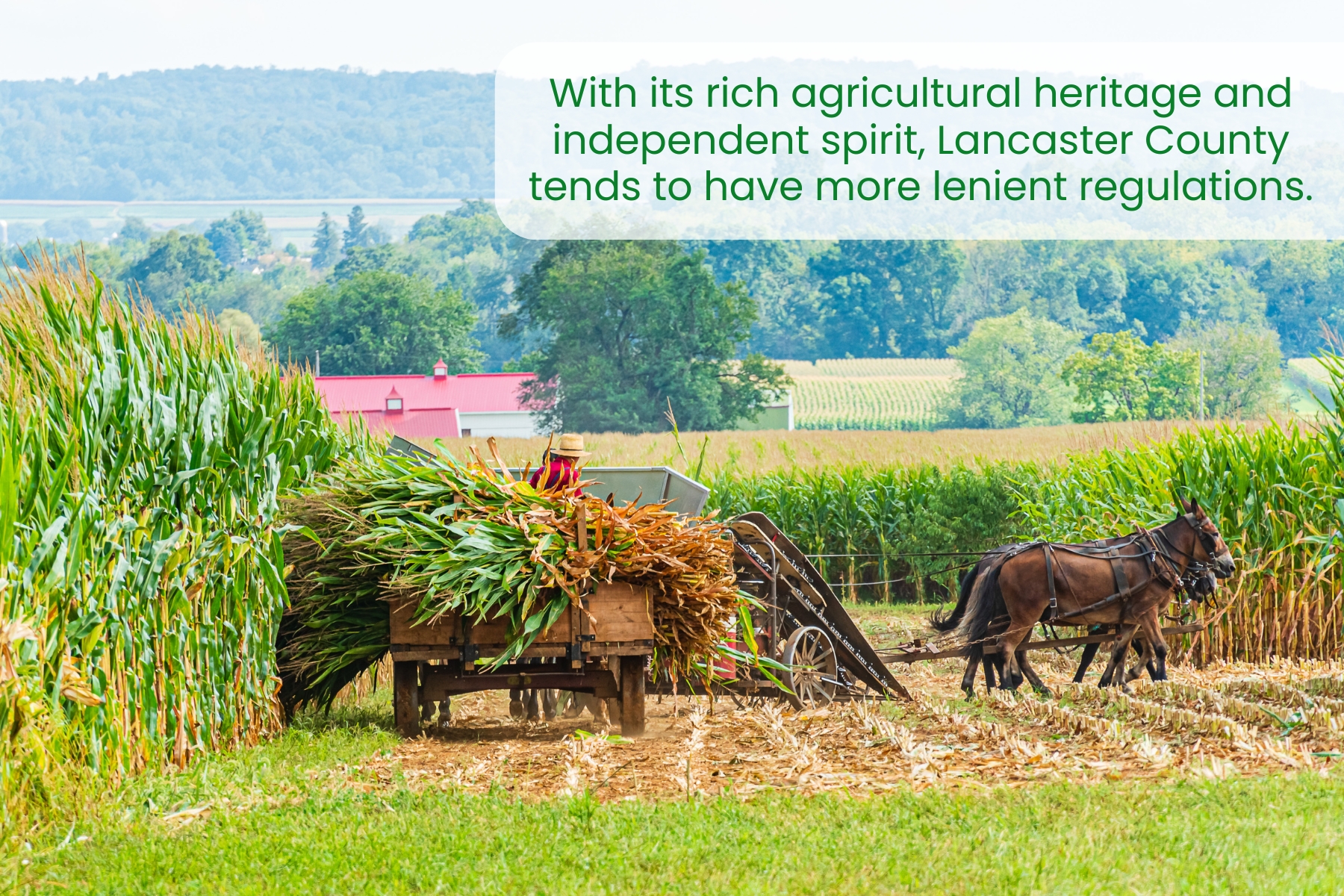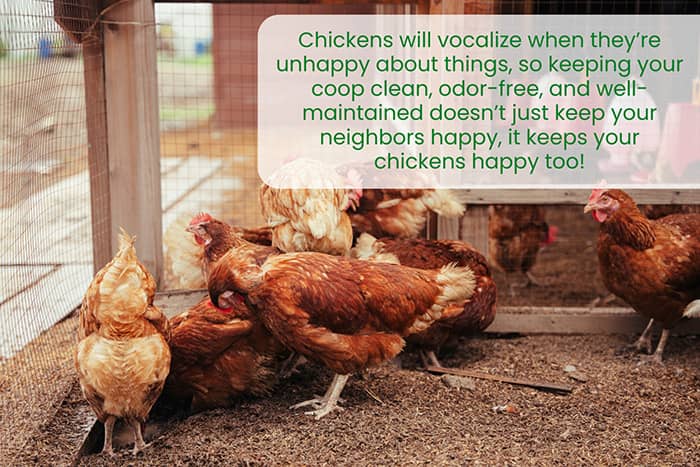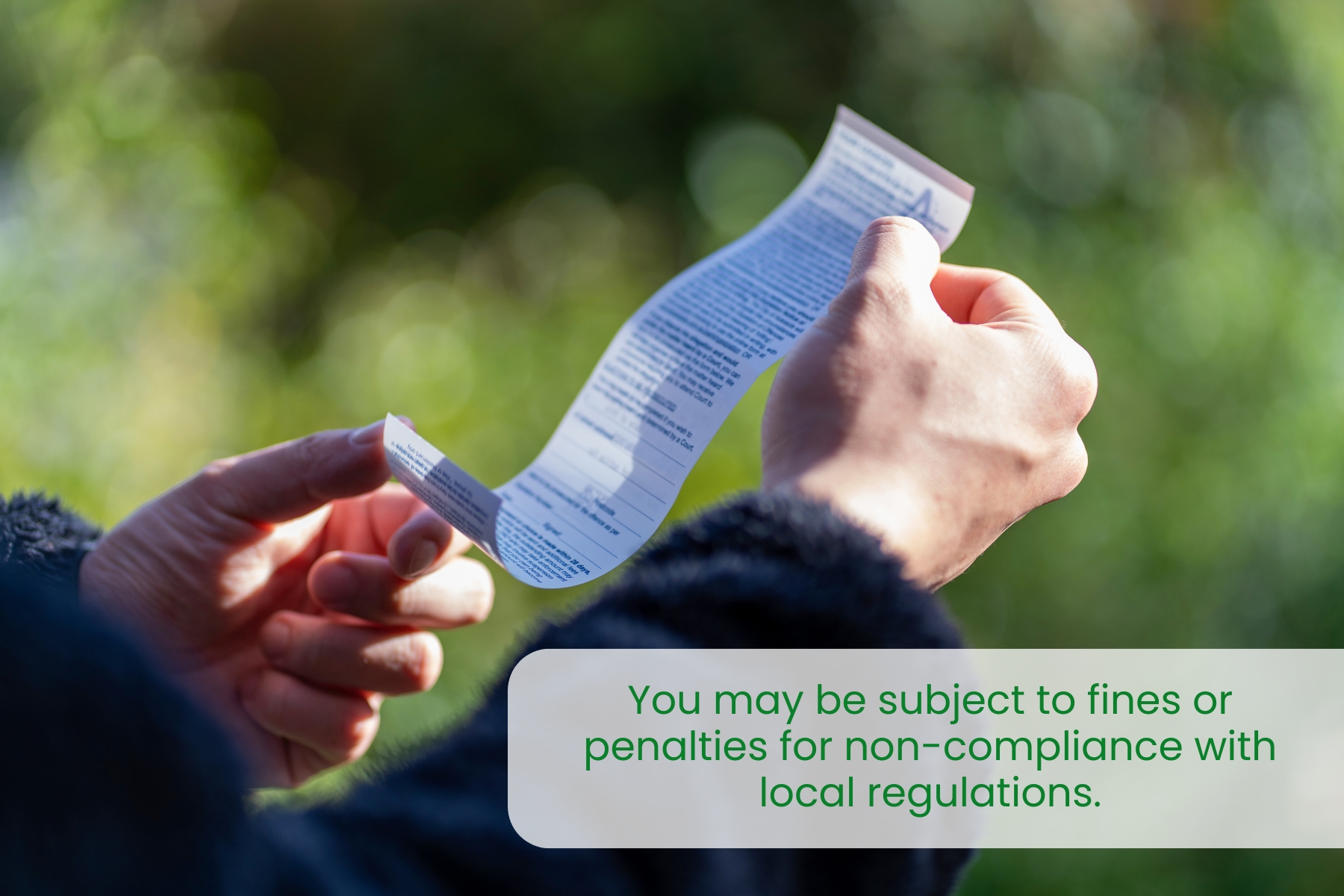A Comprehensive Guide to Keeping Backyard Chickens in Pennsylvania
What do you need if you want to raise chickens in your backyard? A coop, a bag of feed, and some chickens? In reality, it's a lot more complicated than that. Responsible poultry ownership requires following laws and regulations for humanely raising birds and mitigating disease risks. The State of Pennsylvania enforces these laws.
As backyard chicken-keeping has become an increasingly popular hobby for many Pennsylvania residents, it's essential to understand the rules and regulations that govern backyard poultry, whether you're interested in fresh eggs, sustainable living, or simply enjoying the companionship of these feathered friends.
At The Mobile Chicken House, raising chickens is a labor of love. From our beginnings as egg farmers to manufacturers of our famous chicken houses, our experience raising chickens has given us the knowledge and expertise to give you a basic idea of state and local laws, permit requirements, zoning regulations, and best practices for responsible chicken ownership in Pennsylvania.
Ready? Let’s get cracking!
Pennsylvania's State and Local Laws on Keeping Chickens
The regulations for keeping backyard chickens in Pennsylvania vary significantly depending on where you live. While no overarching state laws specifically regulate backyard chickens, local municipalities have the authority to establish their own rules. This means that the requirements in urban areas like Philadelphia or Pittsburgh may differ from those in rural townships:

- State-Level Regulations: The Pennsylvania Department of Agriculture oversees animal health and welfare at the state level but does not provide specific guidelines for backyard chickens. However, chicken owners must comply with general animal welfare laws and biosecurity measures to prevent spreading diseases like avian influenza, which can infect other farm animals and humans.
- Local Laws and Ordinances: Local ordinances make up the majority of regulations regarding backyard chickens and can include rules such as requiring permits or licenses to restrictions such as flock size, coop placement, or noise levels. As these ordinances vary from township to township, the only way to find your area's specific requirements is to consult your local government.
Finding Out If You Need a License or Permit in Your Township or City
Which came first, the chicken or the egg? If you’re in Pennsylvania, neither; it’s most likely a permit! Determining if you need a license or permit to keep chickens begins with engaging with your local government, zoning office, or city hall. Here are four ways you can go about it:
- Start at Your Local Government Website: Most townships and cities have comprehensive websites with information about zoning and permits. Look for sections related to animal control or agriculture.

- Contact the Zoning Office: If the information you need isn’t available online, call or visit your local zoning office. They can provide details about any permits required to keep chickens.
- Review Local Ordinances: Obtaining a copy of your local ordinances will help outline the specific rules and regulations for raising backyard chickens in your area.
- Attend a Local Council Meeting: Local council meetings discuss changes to ordinances, which may include topics related to backyard chickens. Attending these meetings can provide some valuable insights. You may also meet with fellow chicken enthusiasts, letting you plug in to the local community.
Chicken Regulations by County
Regulations regarding backyard chickens vary widely from county to county, so here are a few brief examples of how some counties and townships approach backyard chicken regulations:
- Philadelphia County: Philadelphia residents are allowed to keep up to six hens in their backyards, with an open area for the chickens of at least 2 square feet per hen. The hens must be kept in a fully enclosed coop. To prevent health hazards, ensure your chicken coop is clean and well-maintained. While no specific permit is required, you should ensure compliance with general animal welfare laws.
- Allegheny County: Pittsburgh, Pennsylvania’s second largest city, also allows residents to keep chickens but requires permits contingent upon presenting a detailed site plan to Pittsburgh’s zoning authorities. Up to five chickens or ducks are permitted for every 2000 square feet of land with strict requirements for sanitation and noise. Pittsburgh’s backyard chicken community is quite active, though, and it’s a good idea to network with them if you want to keep backyard chickens in the Iron City.
- Lancaster County: With its rich agricultural heritage and independent spirit, Lancaster County tends to have more lenient regulations. However, find out if local townships have flock size limits and permit requirements, as Lancaster’s residents are passionate about their backyard chickens.

- Montgomery County: Within Montgomery County, there appears to be no legislation regarding backyard chickens at the county level. However, Montgomery township has strict regulations regarding the raiding of backyard chickens, only allowing up to 4 hens on properties under an 40,000 square feet and six hens on a property between 1 to 3 acres. Housing requirements also require more space in the coop than in other counties.
As you can see, there’s a lot of variety on how backyard chickens are regulated in Pennsylvania. Doing your due diligence and adhering to these rules will lead to a cluckin’ great time.
Common Restrictions on Flock Size, Coop Placement, and Noise Regulations
While regulations vary from county to county and even down to the township, several common restrictions are typically enforced across different municipalities. Let’s take a look at what they are:
- Flock size: Most local ordinances limit the number of chickens you can keep, though flock sizes are complicated by different variables such as lot size. For example, Caernarvon Township in Berks County allows up to 3 chickens or ducks per ¼ acres of land, while Monroe County provides up to 8 chickens on any size lot. Roosters are prohibited due to noise regulations.
- Coop placement: Coop placement is another critical aspect of chicken regulations. To keep the chickens from becoming a public and health nuisance, many ordinances require a minimum distance a coop must be from property lines, neighboring residences, and public roads, so it’s essential to consult local zoning and planning departments to determine specific coop placement requirements.
- Noise regulations: Hens are generally quieter than roosters, but noise regulations will apply. Ensure that your chickens don’t disturb your neighbors. Chickens will vocalize when they’re unhappy about things, such as dirty coops or lack of space—so keeping your coop clean, odor-free, and well-maintained doesn’t just keep your neighbors happy, it keeps your chickens happy too!

- Manure management: Pennsylvania law requires all livestock owners, even with one chicken, to have a written plan to address their bird’s manure. This rule is part of the Pennsylvania Code Title 25, which seeks to reduce nutrient and sediment pollution into streams and waters of Pennsylvania. However, recycling that nutrient-rich animal manure into your garden is acceptable.
What Happens If You Keep Chickens Without a Permit?
Keeping chickens without the necessary permits or in violation of local ordinances can lead to several consequences:
- Fines and Penalties: You may be subject to fines or penalties for non-compliance with local regulations.

- Removal of Chickens: In some cases, you may be required to remove your chickens if kept illegally.
- Neighbor Complaints: Non-compliance can strain relationships with neighbors, leading to complaints, potential legal disputes, and unpleasant interactions with the people around you.
- Legal Action: Persistent violations can lead to legal action, which may involve court appearances and additional fines. If you live in an area with an HOA, they may get involved and take action against you, leading to property foreclosure as the worst-case scenario.
To reiterate, it's crucial to research and adhere to local regulations before acquiring chickens. Don’t skimp on this. It’s not worth it!
Tips for Responsible Backyard Chicken Ownership in Pennsylvania
Be a good neighbor and chicken owner—ensure your backyard is ready for chickens before buying your first one!
- Research and plan: Before getting chickens, research local regulations and plan your setup accordingly. Consider factors like budget, coop size, location, and the number of chickens you can accommodate.
- Choose the right breeds: A chicken is no different from another chicken, right? Believe it or not, there are hundreds of chicken breeds, though the exact number is debatable. The diversity of chicken species is to your advantage, though. You can select chicken breeds well-suited to your environment and purpose, whether for egg production, meat, or companionship.

- Provide adequate space: Ensure your chickens have enough space to roam and forage. Overcrowding can lead to stress and health issues. Healthy, happy chickens are a positive outcome for everyone, as happy chickens make better meat and eggs. Portable chicken coops will let you house your chickens safely and provide the mobility you need to move the coop, allowing more backyard space for scratching and fertilizing.
- Maintain a clean coop: Clean the coop regularly to prevent odors and disease. Proper ventilation and bedding are also essential for a healthy environment.
- Ensure biosecurity: Protect your flock from diseases by practicing suitable biosecurity measures. Limit contact with wild birds and regularly check for signs of illness. Biosecurity has never been more important in recent memory, given the devastating effects of avian influenza on both birds and humans

- Be considerate of neighbors: Communicate with your neighbors about your plans to keep chickens. Address any concerns they may have and work to prevent noise or odor disturbances. Remember that they live next to you and have just as much of a right as you do to live in peace and comfort.
- Stay informed and educate yourself: Join local poultry clubs or online forums to stay current on changes in local regulations and best practices for chicken keeping. These can provide valuable support and information. You can learn about chicken care, nutrition, and behavior. Understanding your chickens' needs will help you provide the best care possible. Blogs from fellow backyard chicken enthusiasts are also great places to learn.
By following these tips and adhering to local regulations, you can enjoy the benefits of backyard chicken-keeping while maintaining harmony with your community.
Conclusion
With diminished egg-producing populations and rocketing egg prices, having chickens that lay their own eggs is a no-brainer.

But things aren’t as simple as they appear, and you’ll need some due diligence to ensure that your newfound hobby doesn’t bring unwanted attention to you and your flock. Ensuring you’ve got all your i’s dotted and your t’s crossed will free yourself, your neighbors, and your local authorities from headaches.
At the Mobile Chicken House, we’re all about producing pasture-raised eggs in a sustainable and humane environment. Whether you’re running a commercial or hobby operation, we’ve got something for everyone. We’ve grown up around egg farming and know the frustrations of inefficient egg gathering. We continue to design, build, and provide quality mobile chickens and coops with durability and value in mind.
Contact us today, and let us help you lay a foundation for your future egg supply!







